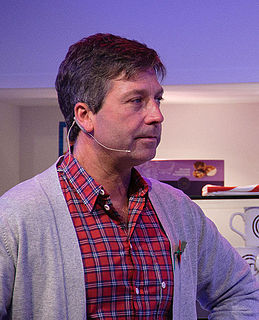A Quote by Luke Ford
I loved history, particularly of the British, American and Old Testament kind.
Quote Topics
Related Quotes
I think I've actually benefited from Australia being a kind of combination of both British and American culture. We kind of got the best of both British and American television and books, science fiction and fantasy, and so on. So I'm familiar with a lot of, for example, American books and television that a British author of my generation might not be.
Protestants and Catholics have historically disagreed on the canon of the Old Testament but agreed on the canon of the New Testament. Christians throughout history have at times been imprisoned and even martyred for keeping books of the Bible or whole Bibles when told to surrender them to political authorities.
It's not as if the New Testament writers came along and said, "The culmination of Old Testament books is more books, New Testament books." In some ways they thought instead of the culmination of Old Testament books being Christ himself, the word incarnate as the opening verses of Hebrews 1 put it. In the past God spoke to the fathers by the prophets, but in these last days he has spoken to us by his son and the son is revelation.
We go from Malachi to Matthew in one page of our scriptures, but that one piece of paper that separates the Old Testament from the New Testament represents 400 years of history - 400 years where there wasn't a prophet, 400 years where God's voice wasn't heard. And that silence was broken with the cry of a baby on Christmas night.





































